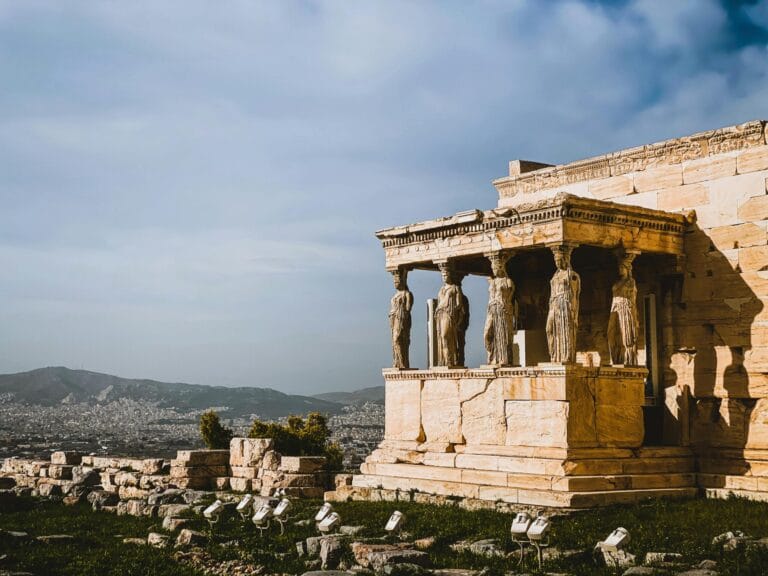Available in Audio!

The Role of Prophecy in Shaping Modern Narratives
We humans love to predict. From weather forecasts to stock market trends, we’re always trying to peek into the future. Sometimes it’s intuition; other times, it’s cold, hard data.
But here’s the kicker: we’re often wrong. Despite our best efforts, unforeseen twists throw us off course. And even with that proven realization that we are often “dead wrong” we still venture. We love predictions.
Biblical Prophecies: Messages from the Divine
Now, contrast that with biblical prophecies.
According to Amos 3:7, “Surely the Lord GOD does nothing unless He reveals His secret counsel to His servants the prophets.”
These aren’t mere hunches; they’re believed to be divine messages, delivered through dreams and visions.
The Weight of Divine Words
Consider this: if an all-knowing deity delivers a prophecy, wouldn’t it be inevitable for it to come true? After all, such a being would possess perfect knowledge of the future.
Many people highlight significant events, such as the birth of Jesus in Bethlehem, as clear examples of prophecies coming to fruition. These moments are often seen as powerful evidence of their divine source and the unerring accuracy of such predictions.


Prophecy in Today’s Stories
Modern tales love a good prophecy.
Take “The Matrix,” where Neo is “The One” destined to free humanity. Or “Harry Potter,” with the prophecy about Harry and Voldemort. These elements add depth, driving characters and plots in compelling directions.
Human vs. Divine in Storytelling
When stories use human predictions, there’s room for error, adding suspense. Will the hero succeed, or is the prophecy flawed?
But with divine prophecies, there’s a sense of inevitability. The path may be rocky, but the destination is set. We see this in the Dream of Empire historical novel when both ancient and modern characters reiterated these words:
“The dream is certain. The interpretation is sure.” — Daniel 2:45
Why We Love Prophecies in Stories
There’s something about the unknown that captivates us. Prophetic narratives tap into our curiosity, offering glimpses of possible futures and the comfort (or discomfort) of destiny.
If you read the Gospels, you may have noted the response of the disciples to Jesus’ statement when He prophesied the destruction of the beautiful temple buildings in Jerusalem.
“…not one stone here will be left upon another, which will not be torn down.” — Matthew 24:2
Did you see what their next statement was?
Yes, they asked Jesus to tell them when that will happen, what signs will show that He will be coming again, and what indications will there be that the world will end.
Oh yes. We always need to know “when”. It’s natural.
Treading Carefully: Ethics in Prophetic Storytelling
While prophecies enrich narratives, they come with responsibilities. Misrepresenting sacred prophecies can offend, so storytellers must balance creativity with respect.
Throughout history, misinterpreting prophecies has often led to unfavorable outcomes. When sharing prophecies in stories, it’s crucial to tread carefully. Respect for the sacred and ethical storytelling are key to avoiding the pitfalls of misinterpretation.
One well-known example of misinterpreting prophecies is the panic surrounding the prediction of the Mayan calendar’s “end” on December 21, 2012. That story made many headlines.
Many believed this date signified an apocalyptic event or the end of the world. However, scholars clarified that the Mayan calendar was merely marking the end of a cycle and the beginning of a new one, not forecasting global destruction. Despite this explanation, the misinterpretation led to widespread fear, sensationalism, and even drastic actions taken by individuals and groups preparing for an imagined catastrophe.
Here is a useful principle when it comes to biblical prophetic interpretation. This should be remembered…
Knowing this first, that no prophecy of the scripture is of any private interpretation. For the prophecy came not in old time by the will of man: but holy men of God spake as they were moved by the Holy Ghost. – 2 Peter 1:20-21
There you go. Not every “prophet” speaks for God. Some speak off their own volition.
Shaping Beliefs Through Prophetic Tales
Stories wield power. Prophetic themes can challenge or reinforce our views on fate, free will, and morality, making us reflect on our own beliefs.
Prophetic interpretations of parts of the Bible have shaped the belief systems of many Christians, politicians, and even non-believers.
What if the prophecies concerning Israel as a theocracy are not relevant to Israel as a democracy?
Case in Point: Biblical Prophecies in Modern Media
Consider “The Chronicles of Narnia.” C.S. Lewis weaves in biblical prophecy themes, adding layers of meaning that resonate deeply with readers familiar with such narratives.
During the 1840’s many Christians influenced by the preaching of Baptist preacher William Miller, misinterpreted the phrase “then shall the sanctuary be cleansed” (Daniel 8:14) to mean the purifying of the earth (God’s sanctuary).
Meaning, Christ would come back to earth around October, 1844. The thing is, the reference was not meant to be associated with the sanctuary of earth but the sanctuary in heaven (see Hebrews 8:2)
The misinterpretation of the day when Christ should return–the heartache of the masses as a result–could have been avoided if the prophecy was taken in context of the whole Bible.
Why?
“But of that day and hour knoweth no man, no, not the angels of heaven, but my Father only.” – Matthew 24:36 (KJV)
Looking Ahead: Prophecy in Emerging Media
With digital platforms on the rise, prophetic storytelling is evolving. Interactive media, like video games, now let audiences engage with prophecies, influencing outcomes in real-time.
Prophecies, especially those rooted in divine revelation, offer narratives a unique depth. They challenge characters, drive plots, and resonate with our innate curiosity about the future.
So, next time you’re engrossed in a story with a prophetic twist, take a moment. Reflect on its origins and the profound impact it has on the tale—and perhaps, on you.
Dream of Empire is an illustration of the role of prophecy in shaping or influencing today’s narrative on power, ambition, and end times themes. Get your copy today!



